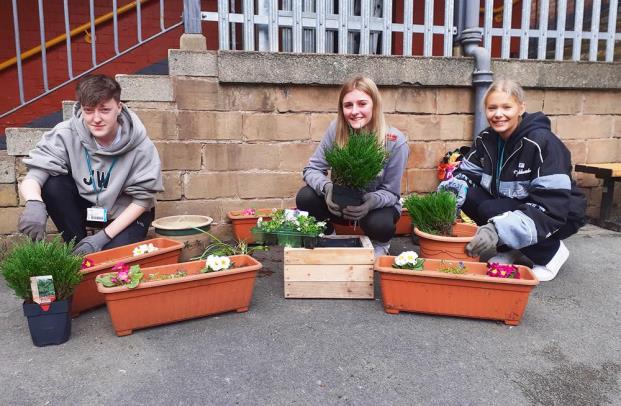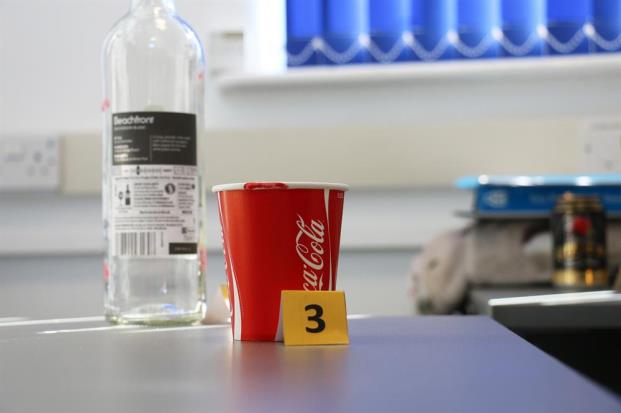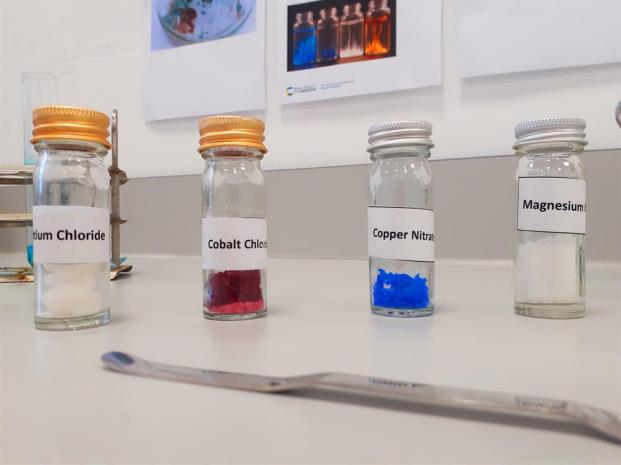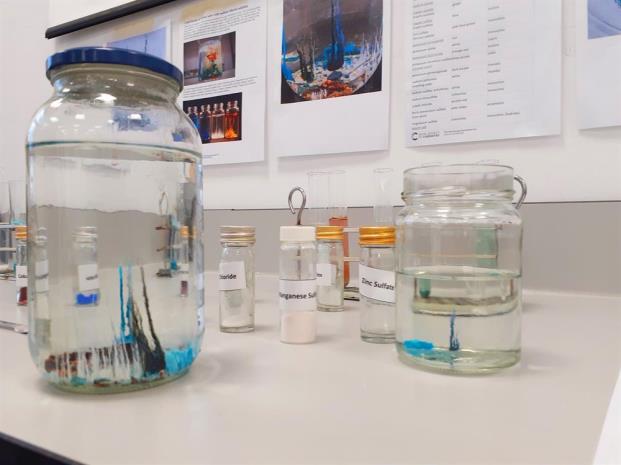Posted: 21/03/22
It’s science for all at college during British Science Week
Students at the Mansfield and Ashfield Sixth Form College have been embracing all things science in recognition of British Science Week.
-

Advanced Diploma in Forensic Science students Chloe Gormley, Aliesha Holmes and Ruby Dennis get green-fingered in the courtyard area
-

Students had to help solve a 'murder' at a mock crime scene
-

All evidence was labelled, measured and tested
-

Biological, chemical and physical evidence was taken from the scene
-

Crystalised metal salts were selected to add to water
-

The salts then created a slow-growing crystal formation
The week-long celebration of science, technology, engineering and maths took place at West Nottinghamshire College sixth form centre on Chesterfield Road, Mansfield, from 14 to 18 March.
On Monday (14 March) the forensic science team mocked-up their own grisly crime scene for students to use their scientific, analytical and strategic skills to solve a ‘murder’. All A-Level students were invited to enter the crime scene to discover what their forensic science peers learn on their course.
The scene was set up like a real-life situation with the victim, potential weapons, evidence and fake blood splatters cordoned off with police barrier tape. Students were challenged to report on their findings, learn how to take official measurements, biological, chemical and physical evidence ready for analysis.
People could try out how to take fingerprint samples using aluminium fingerprint powder and a soft brush, which was dusted onto a bottle which had already been handled. Students learnt how to apply the powder then lift the print using tape and sealing it behind an acetate sheet, before analysing how fingerprints are made up.
On Wednesday (16 March) a garden with a difference appeared to grow in the science laboratory at the campus. This was a mineral-based rather than plant-based experiment which drew gasps from onlookers. Science tutors prepared an experiment to grow a crystal garden and people saw some colourful results.
A water glass was set up which is a solution of sodium silicate. By adding water to the water glass this formed a dilute solution of sodium silicate. When students put a range of crystalised metal salts into the solution they could watch them act like seeds, sending long shoots up into the water. The long shoots are tubes of the metal silicate and the colour depends on the metal being used.
On Tuesday and Thursday (15 and 17 March) students and tutors took their tools outside of the classroom to look at plant biology with a colourful planting project.
A mission to turn a previously neglected tarmacked courtyard from a smoking area to a space full of plants and flowers to welcome both people and insects to enjoy the space, started during British Science Week.
More than a dozen planters, pots and troughs were prepared with compost and planted with primroses, pansies and small fir trees thanks to students volunteering their time. Tutors hope to further develop this courtyard as the seasons progress, to be full of seasonal plants.
Forensic science students have also been busy undertaking their independent research projects in an area which interests them. They all carried out a scientific literature search and review, looking at their project’s aims and objectives, using investigation and project management skills.
Projects included testing the effects of alcohol on the heart rate, looking at the effects of pH on bones, how plants react to electricity and how bacteria survives in extreme conditions, and many more.
The students work can be seen here online at https://express.adobe.com/page/Jpc5X8peuXW97/
BTEC Applied Science student Ruby Dennis said: “I really enjoy science. We learn a bit of everything like biology, chemistry and physics. My favourite is biology and learning about the body. Eventually I want to be a forensic scientist.
“This subject is really important I feel; for example in a murder case, to be able to solve it through science and give a family some closure on their relative’s death. The forensic side of science is intriguing.
“I’m hoping to go on to university next to go into this area in more depth.”
Head of academic studies Alison Lincoln said: “We’ve really enjoyed showing all of our A-Level students the wonderful world of science – not just those who are studying science. It’s created a lot of interest in the projects we’ve had running and it has opened people’s eye to just how much science interweaves in our daily lives.
“We’ll be continuing the planting in the courtyard and keeping this going as a plant biology and environmental science study to make the most of this outside area and to get our students involved in learning more about plant life and generally making this space a pleasant place to be.”